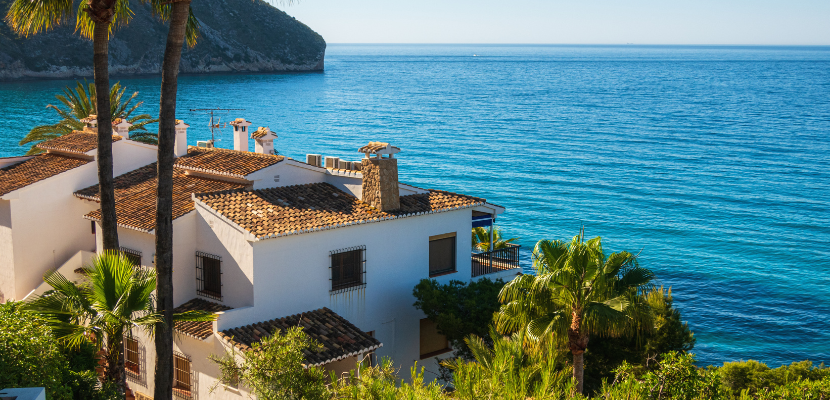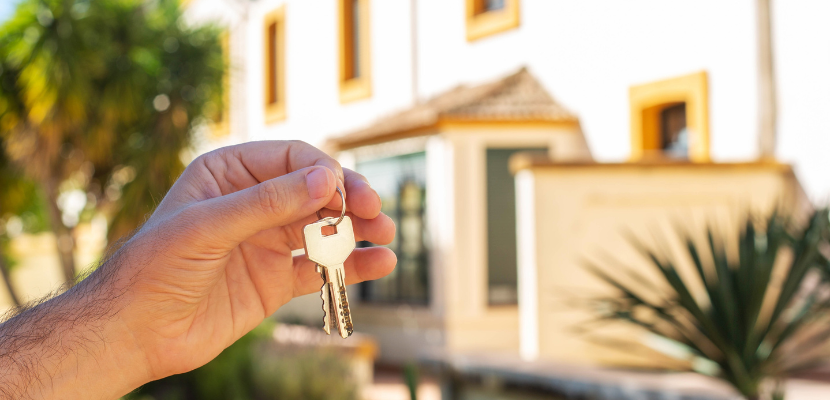
Spain has long been a favoured destination for holiday homes and permanent relocations. However, purchasing property in Spain involves several costs and tax considerations that potential buyers must be aware of. Below, we break down the essential tax implications of buying property in Spain and explore recent developments that could impact foreign buyers.
Costs of buying a property in Spain
The overall cost of purchasing property in Spain typically ranges between 11% and 14% of the property’s purchase price. These costs vary depending on the region and the type of property. If you are financing the purchase with a Spanish mortgage, expect additional expenses of around 2% to 4%.
Breakdown of key purchase costs:
- Transfer Tax: Equivalent to stamp duty, this tax applies to resale properties and ranges from 6.5% to 10%, depending on the region.
- VAT on New-Builds: A 10% tax applies to newly built properties, plus an additional 1.5% stamp duty.
- Notary Fees: Typically 0.5% of the purchase price, ranging from €300 to €1,200.
- Land Registry Fees: Usually between €400 and €600, or 0.4% of the purchase price.
- Legal Fees: Usually 1% of the purchase price plus VAT, with a minimum charge of around €1,000 to €2,000.
- Other Costs: Buyers should also budget for obtaining an NIE number (foreigner identification number) and utility connection fees.
Tax considerations when buying in Spain
Under-declaring the purchase price
Capital gains tax is payable by the seller on the difference between the acquisition value and the selling price of a property. If a seller wants to reduce the capital gains tax payable they may insist upon a part of the price being paid in cash. This is unlawful, because it is tax evasion. If the buyer agrees to make a cash payment they are assisting with that tax evasion. Further, by declaring to the Spanish tax authorities that they are paying a reduced amount the buyer is paying less purchase tax and so is evading tax themselves.
Given that capital gains tax is set at a rate considerably higher than purchase tax, a buyer who pays part of the price in cash is increasing their future capital gain and so is increasing the capital gains tax that will be paid upon sale of the property. It is a “lose lose” scenario for the buyer and so highly inadvisable.
Paying purchase tax on a low property value
Before the crash in Spanish property prices in 2008, the market price of property was inflated far beyond what the Spanish tax authorities expected the value of property to be.
Throughout that time, in addition to the market price of property, there was an official value established by the Spanish tax authorities and purchase tax had to be paid based on the minimum official value at the very least, in order for a purchaser to be certain that penalties were not imposed. Subsequent to the crash and the drastic drop in market values, the official value of property was, and still is, often higher than the market value.
Hence, it is essential to make certain that whatever the purchase price, one is paying purchase tax on no less than the lowest current official value established by the Spanish tax authorities. Failure to do so may result in the tax authorities reassessing the value of your purchase and issuing a demand for tax payable based on an inflated value, sometimes greater than the lowest official value. The appeal system is long-winded and can be expensive, so taking steps to avoid it is certainly the best policy.
Finally, do not think that Spanish transfer tax, whether upon a sale, a gift, or inheritance of a Spanish asset, can be avoided by transferring ownership of the asset into a limited company, whether a Spanish company, an English registered company, or a company registered anywhere else in the world.
This is fraudulent as a form of tax evasion.

Tax & tax residency implications
It is essential that you fully understand the difference between being resident in Spain and being tax resident in Spain. The two things are quite different and can have a profound impact upon you and your family, particularly with regard to inheritance tax.
If you intend to reside in Spain for longer than three months then you must apply for some sort of visa now the UK has left the EU. The very act of applying for a visa suggests you want to be based in Spain so the assumption is that you will become tax resident there, as well as legally resident (if your visa application is successful). But it is also easy to accidentally become a tax resident in a country if you stay longer there than intended.
To be tax resident in Spain you must make an annual tax declaration to the Spanish tax office. This will be deemed as mandatory according to a number of factors such as: if you live in Spain for 183 days a year or longer, or if your main and primary residence is in Spain, or if your spouse and children live in Spain or your main economic interest is in Spain. The vital point is that you must actually make a tax return to the Spanish tax authorities (even if it amounts to a nil return) to be designated as tax resident and thereby eligible for free healthcare and tax exemptions on inheritance tax.
Importantly, if you are deemed to have been a tax resident and you have not made an annual tax return, then you will not be eligible for tax exemptions.
VIEW OUR INTERACTIVE BUYING GUIDE TO SPAIN
Proposed tax changes for non-EU buyers
In January 2025, Spanish Prime Minister Pedro Sánchez announced a proposed 100% tax increase on properties purchased by non-EU buyers. However, the details remain unclear, and there is significant opposition to the proposal.
Why it may never happen
Legal hurdles
- Left-wing government is a minority coalition, is not especially popular and has struggled to get other legislation through parliament (Congress).
- For resale properties the transfer tax [ITP] is set and controlled by each region, so any change he would like to make could be abolished.
- Legal experts questioning whether such discriminatory tax policy goes against a clause about fair taxation in the Spanish constitution, and possibly EU law.
- Enforcing it across 17 regions would be a bureaucratic nightmare.
- No clear details or timeline.
Economic risks
- Spain relies on foreign buyers and tourism (13% of GDP).
- Non-EU owners boost the economy, jobs, and tax revenue.
- Could shrink property sales and reduce foreign investment.
- Housing issues stem from lack of new builds and Airbnb rules, not foreign buyers.
Not the solution to Spain’s housing crisis
Taxing foreigners is a misguided attempt to address Spain’s housing crisis. The real issue is a lack of affordable housing, especially in cities like Barcelona. Short-term rentals, often owned by Spaniards, are wrongly blamed, while restrictive policies deter developers and landlords.
British buyers aren’t speculators, and most don’t use Airbnb. Post-Covid, more are moving permanently, contributing to the economy, yet the government ignores this reality.

Final thoughts: should you buy now?
Nothing has changed yet. Even if this, or a modified form of it, did become legislation it is going to take months. It takes one to two months to purchase a property in Spain, typically, so there is plenty of time to buy this spring or summer.
If this were to become law, British buyers would be able to rent a property in Spain, become resident and subsequently buy a property without paying this tax. To become resident they could get a Non-Lucrative Visa or Digital Nomad Visa. And anyone with an EU partner e.g. Irish, would not need to pay the tax. Holiday home buyers may even be able to set up a Spanish company which would own the property, again avoiding the tax.
But to reiterate: we do not think that these tax rises will ever happen so if you really do want a home in Spain why not come along to one of our upcoming exhibitions where you can find experts to help you on your journey! If you’re serious about buying, there is no need to panic - Spain remains open for business.
Upcoming A Place in the Sun Live exhibitions: